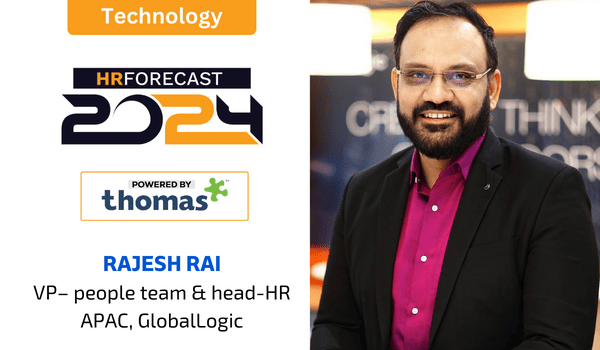Talent tango: Fresh faces, sharp skills, or tech triumph? HR’s 2024 balancing act
Technological changes are becoming permanent, with every company transforming into a software enterprise, regardless of the industry sector. The rapid evolution of technology, especially GenAI emphasises the critical need for both adopting new technologies and upskilling on them. In the current landscape, talent that stands out demonstrates proficiency through practical application and realworld experience rather than relying solely on certifications or theoretical knowledge. Continuous upskilling, coupled with hands-on experience in new tech environments, is vital for staying relevant in the market.
Talent tug-of-war: Balancing retention with inflationary realities
The era of incurring disproportionate costs to identify talent has passed. Today’s focus is on reaping financial rewards through well-thought differentiation in performance, grounded in the application of market-relevant skills and a sincere effort to apply the right combination of skills, knowledge and competencies to real work outcomes.
Therefore, the HR function plays a pivotal role in ensuring that rewards are tied to performance outcomes, considering expectations such as agility, resilience, adaptability to change and ambiguity, and staying market-relevant with the right skills. Managerial capabilities must be continually upskilled to reinforce cultures built on trust and enablement for optimal performance.
The Metaverse is a lasting force with the ambition to seamlessly blend virtual and physical experiences for future potential
GenAI HR guru or big brother bot? Ethical dilemmas of the automated workplace
Certainly, HR leaders will exhibit enhanced wisdom, discretion and curiosity in adopting AI, specifically GenAI. This is crucial due to its evolving nature, promising bigger and better outcomes that can deliver creative personalised experiences for customers while simultaneously addressing ethical and privacy concerns through profitable solutions. Artificial intelligence will transition from being the most-discussed technology to perhaps the most explored, aiming to drive high-impact outcomes for the real world by HR, and this exploration will continue to deepen over time. However, this exploration should be conducted mindfully, considering the possibilities within ethical and privacy guardrails.
Metaverse mirage or work revolution? HR decides the fate of virtual experiences
The Metaverse is undoubtedly here to stay. However, in a world driven by new technologies, the impatience for rapid RoI is evident. Given the current ‘work from anywhere’ scenario, the Metaverse will persistently reshape traditional HR processes and collaboration. Nevertheless, patience is essential as it matures and evolves, a process expected to occur annually, including the present year, for at least the next five years.
Quiet quitting tsunami: Can HR turn the tide on disengagement?
Employee enthusiasm cannot be cultivated over a virtual call. It thrives on in-person human interactions, dialogues and collaborations. Therefore, the key focus this year should be on bringing people back to offices for these essential interactions, brainstorming sessions, collaborations and the development of networks and workplace relationships. It is crucial for individuals to meet faceto-face to foster better understanding and collaboration. This is also essential to establish a cohesive team and a strong connection with the company’s culture. While technology remains a powerful enabler, it is these in-person human interactions that hold the key to rebuilding engagement that may have been lost.
In the post-pandemic era, if there is one aspect that has been significantly crucial, it is communication— specifically, the need for extensive communication to employees. Virtual mediums have limitations in facilitating effective communication.
This article is sponsored by Thomas Assessments
43 leaders predict the upcoming trends for 2024. To download the e-copy click here



